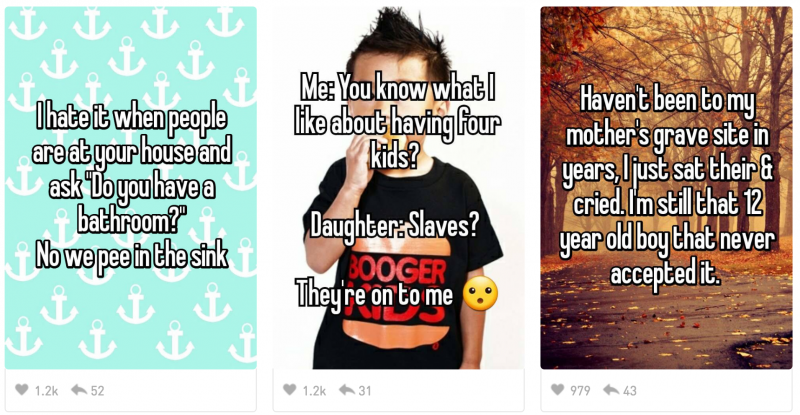
I am a very opinionated person, but when I write publicly I tend to avoid controversial topics. Why? I don’t like to offend people. I am acutely aware of the fact that everything I say online adds up to a picture of who I am and frankly I do give a shit what people think of me.
But, what if I could post what I wanted and no one would know it was me who did it? Enter the anonymous network. A collection of apps and networks that allow people (mostly kids) to speak or act freely without the judgment of those they see every day. These apps may be liberating for some but can be caustic for others.
These are the types of networks you need to be aware of:
Ever have a secret you are dying to get off your chest but have no one you can tell? Want to announce something but don’t want to brag to friends? Enter Whisper. Whisper allows you to post your thoughts using either your own photo as background or one of their stock photos. Once posted, other people can anonymously comment on it. Sometimes a question is asked (example: What scandalous things have teachers done?) and then people post Whispers to answer that question.

Allure:
Risk:
Women’s bathrooms stalls are great for sharing with a captive audience. They are also the best way to anonymously bash someone from your school. Remember those “For a good time call..” messages? Now we have the internet version.
Similar to the confessionals, the concept behind these apps is to post comments anonymously. The difference here is that it is targeted at a selected campus which means bullying can easily reach a target. The 3 biggest are Yik Yak (works within 5 miles of a campus), After School (select school from drop down), and Ogle (select school and comment on posts).

Allure:
Risk:
What’s one of the first safety rules you learn? Never talk to strangers. Omegle is a chat app that sets up two anonymous users in a chat room. The tag line is actually “Talk to Strangers”. I have seen a parody on this that said “Talk to pedophiles”. Young kids seem to really gravitate to this one despite the age being set to 18 and over.

Allure:
Risk:
Last and (in my opinion) least, we have Ask.fm. Targeted mostly at kids, users enter with a picture and a profile. Then other anonymous users and strangers post questions to their ‘board’ where the profiled person can answer publicly. Sometimes the questions are innocent (“Who are your best friends?”) but often they get nasty fast. This site has the most connected ties to cyberbullying and teen suicides in the UK. In the cases I have seen in local schools, most questions are of a sexual nature.

Allure:
Risk:
As an adult, you can decide if you want to use these networks or not. Just be cautious about over-sharing personal information.
If you are a parent, you should be wary of what your kids are using. Students in my area are heavy users of Ask.fm and Omegle. Users start as young as 9 or 10.
To start the conversation, ask your kids:
what apps they use
how they use them
why they enjoy them
Then you can help guide them to use these apps safely and constructively.
For a more complete list of popular kids apps, you can use my Network and App Resource or search YouTube for instructional videos.
![]() RELATED: The Social Media Website That's Putting Your Teen At Risk
RELATED: The Social Media Website That's Putting Your Teen At Risk